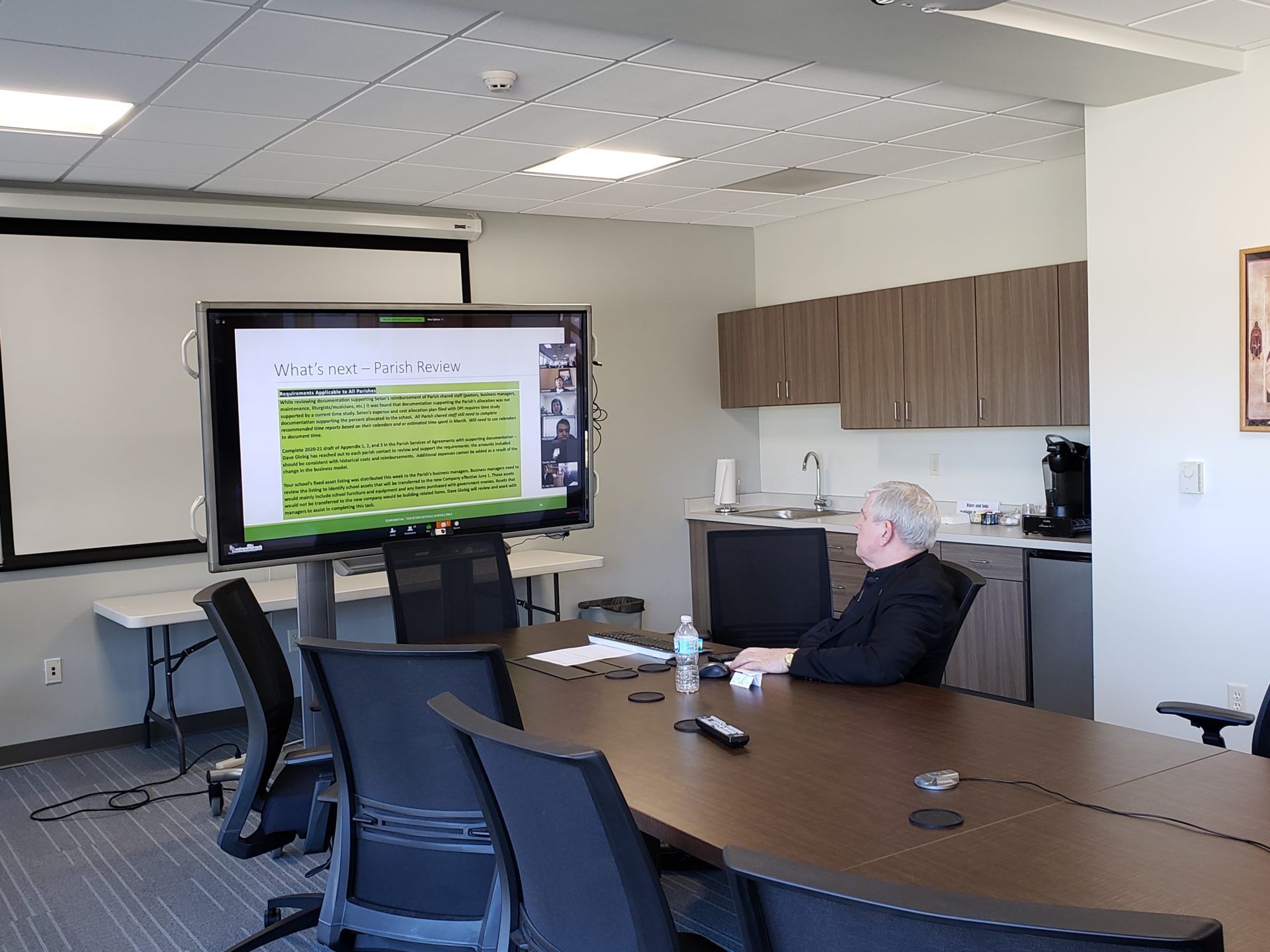On Wednesday, April 1, Archbishop Jerome E. Listecki met via conference call with priests, deacons and parish directors across the archdiocese to update them on protocols during the COVID-19 pandemic.
Among the items that were highlighted:
- The suspension of Mass with a congregation present extends now through May 3. The dispensation from the obligation of attending Sunday Mass is now extended through May 31. Priests will continue to celebrate the Eucharist without a congregation. Abuses have occurred where priests were publicly indicating that the doors of the church would be open during these Masses, thus encouraging people to ignore the “stay safe at home” order. The number of people attending exceeded the permitted number. Therefore, priests must ensure that church doors are secured during these Mass times. Basically, we can’t do anything that would encourage a gathering of people.
- The distribution of Holy Communion remains reserved for Viaticum. The distribution of Communion in a “drive by” set up not only violates the regulation against gatherings of large numbers but it also, much more seriously, undermines our Eucharistic theology. Pastors are still teachers of their people. Teach them to reclaim the age-old tradition of Spiritual Communion. Help them grasp the idea that the desire to receive the Eucharist is a grace in itself, and, if one offers up that desire in prayer to God, it can become an occasion for even greater grace and spiritual growth.
- As for Anointing of the Sick, Fr. Jerry Herda and Fr. Javier Bustos are going to work with hospitals and health care facilities on a way to allow a very limited number of priests to have access to patients and residents in serious need of the Sacrament of the Sick and/or Viaticum. Priests have been asked to contact Fr. Herda if they are willing and able to offer these services. Only healthy priests with no underlying medical conditions will be selected for this special ministry. We will provide training for them in how to provide the sacrament in a manner that is safe for both you and the person being visited.
- The Sacrament of Reconciliation is not suspended but the regulations for public gatherings and social distancing must be observed. There are to be no “drive-by” confessions. If a person is in serious need of the sacrament they should call and schedule a time. General Absolution: It is the responsibility of the diocesan bishop to determine if local conditions meet the threshold of “grave necessity” for general absolution. (Can 961§2)
As of now, our current conditions do not constitute this “grave necessity” for general absolution to be used in the archdiocese as it is still possible for pastors to hear confessions of the faithful. General absolution of this kind would necessitate the gathering of individuals in the same place, which runs counter to the recommendations and directives of health officials and government leaders. If it is determined that the conditions expressed in canon law become present, the archbishop will issue and communicate new directives.
- Palm Sunday: The celebration of the Eucharist without a congregation present remains in place for Palm Sunday. Kim Mandelkow of our Worship Office has supplied parishes with excellent guides containing the adaptations for Palm Sunday and the Triduum. These guides will also be available in Spanish. These changes were issued by the Vatican and are not “suggestions” but regulations. We know pastors are trying to continue bringing pastoral care to their people and some think distributing palms in some manner will do that. There is no way to ensure the needed level of sanitation required to avoid the spread of this virus. People can be asymptomatic and still be carriers. Therefore, palms will not be distributed in any fashion at this time. It is not only out of a health concern but also from our theological tradition that we will not be distributing palms. Palms are sacramentals, in this case flowing from the sacred liturgy; they are in some way derived from it and lead the people to it, since in fact the liturgy by its very nature is far superior to any sacramental. If people cannot respond right now to being drawn to the liturgy there is a danger the palms become more of sort of “charm” than a sacramental. Bottom line – no distribution of palms.
- Triduum: Again, these rites are celebrated without a congregation present. If parishes have the capacity to live-stream they may do so. The Vatican was quite clear that it is live, not pre-recorded, services that can be shared with the people. If the parish does not have the ability to live-stream, people can watch the live-stream feed from the Cathedral. Instructions on how to do so as well as the times will be on the website. The celebration without a congregation present must also use the adapted rites. Note especially for the Easter Vigil, it still cannot start before 8 p.m. and there is no lighting of the Easter fire. The Easter candle is simply lit and put in place without procession. You will need to limit the number of people assisting in the celebrations (lector, cantor, server, musician) with the total number limited to 10, including the priest.
- RCIA: Once we come out of this time of crisis, the archbishop will announce the date we will celebrate as an archdiocese. Please remain connected with the elect and candidates as they deal with this spiritual hardship.
